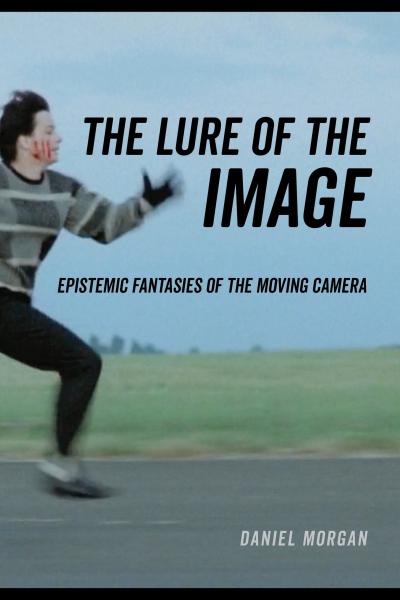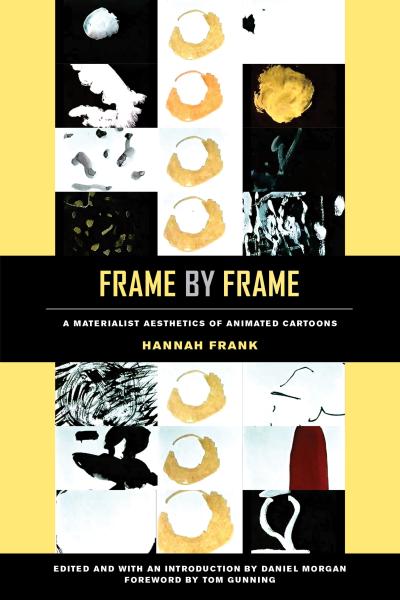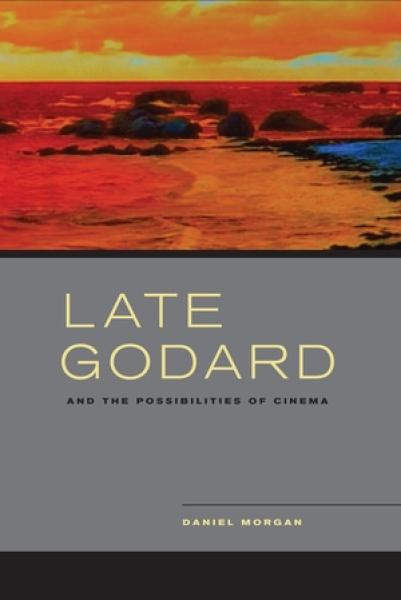
Biography
Daniel Morgan’s work focuses largely on the intersection between cinema and aesthetics. He has written extensively on the history of film theory and philosophy; trends in media theory; film and politics; animation; non-fiction film; experimental media; and questions of film style.
Morgan’s first book, Late Godard and the Possibilities of Cinema (University of California Press, 2012), examines the films and videos of Jean-Luc Godard since the late 1980s, especially Soigne ta droite (1987), Nouvelle vague (1990), and Allemagne 90 neuf zéro (1991)—as well as the video series, Histoire(s) du cinéma (1988-1998). He argues the importance of philosophical aesthetics for an understanding of Godard’s late work while also giving attention to broader topics concerning film and politics, the representation of history, nature in cinema, and how film relates to other media.
His second book, The Lure of the Image: Epistemic Fantasies of the Moving Camera (University of Chicago Press, 2021), is the first sustained study of major theatrical challenges raised by camera movements. It argues against the most common way that camera movements are understood, with viewers feeling as if they are in the world of the film even though this is not actually true, and describes a dynamic between camera and viewer based around an epistemic fantasy that camera movements can place us within the world of the world itself. The Lure of the Image also presents a new model of relation between spectator and moving camera.
Morgan is currently working on a range of projects. These include a study of writers on film and art from 1966-1975, especially involving debates around cinema, politics, and modernism; a research project on ways that we become embarrassed while watching media, and what that tells us about spectatorship; and an investigation into radical aesthetical practices in times of political reaction.
He has also served as editor for a range of books and special issues of journals.
Publications
*Editor of Frame by Frame: A Materialist Aesthetics of Animated Cartoons
Selected Publications
“Modernist Investigations: A Reading of The World Viewed.” Discourse 42.1-2 (Winter/Spring 2021).
“Toward a Natural History of Animated Backgrounds.” Screen 61.2 (Summer 2020).
“Missed Connections.” nonsite.org, Issue #22: “’Art and Objecthood’ at Fifty” (Fall 2017).
“Aesthetic Form and Ethnographic Discourse” in Looking with Robert Gardner, eds. Rebecca Meyers, William Rothman, and Charles Warren (State University of New York Press, 2016): 31-48.
“Where Are We?: Camera Movements and the Problem of Point of View.” New Review of Film and Television Studies 14.2 (2016): 222-48.
“Beyond Destiny and Design: Camera Movement in Fritz Lang’s German Films” in A Companion to Fritz Lang, ed. Joe McElhaney (Blackwell, 2015): 259-78.
“’Play with Danger’: Vernacular Modernism and the Problem of Criticism.” New German Critique 122 (Summer 2014): 67-82.
“Bazin’s Modernism.” Paragraph 36.1 (Spring 2013): 10-30.
“Max Ophuls and the Limits of Virtuosity: On the Aesthetics and Ethics of Camera Movement.” Critical Inquiry 38 (Autumn 2011): 127-63.
“The Afterlife of Superimposition” in Opening Bazin, eds. Dudley Andrew and Hervé Joubert-Laurencin (Oxford University Press, 2011): 127-41.
“The Pause of the World” in Three Documentary Filmmakers: Errol Morris, Ross McElwee, Jean Rouch, ed. William Rothman (State University of New York Press, 2009): 139-56.
“Rethinking Bazin: Ontology and Realist Aesthetics.” Critical Inquiry 32 (Spring 2006): 443-81.
Teaching
Autumn Quarter 2024
CMST 28500 History of International Cinema I: Silent Era
Winter Quarter 2025
CMST 14400 Film and the Moving Image
Spring Quarter 2025
CMST 25101 Film Noir
CMST 67209 Frankfurt School
Previous courses taught include: Film Theory and the Competition of Modernisms (CMST 67411), What's New in New Media (CMST 67830), Movement (CMST 27206 / 37206), Aesthetics (CMST 67207), Film and Philosophy (CMST 63710), History of International Cinema, Part I: The Silent Era ( CMST 28500 / 48500), Advanced Seminar - Spring (CMST 29202)



